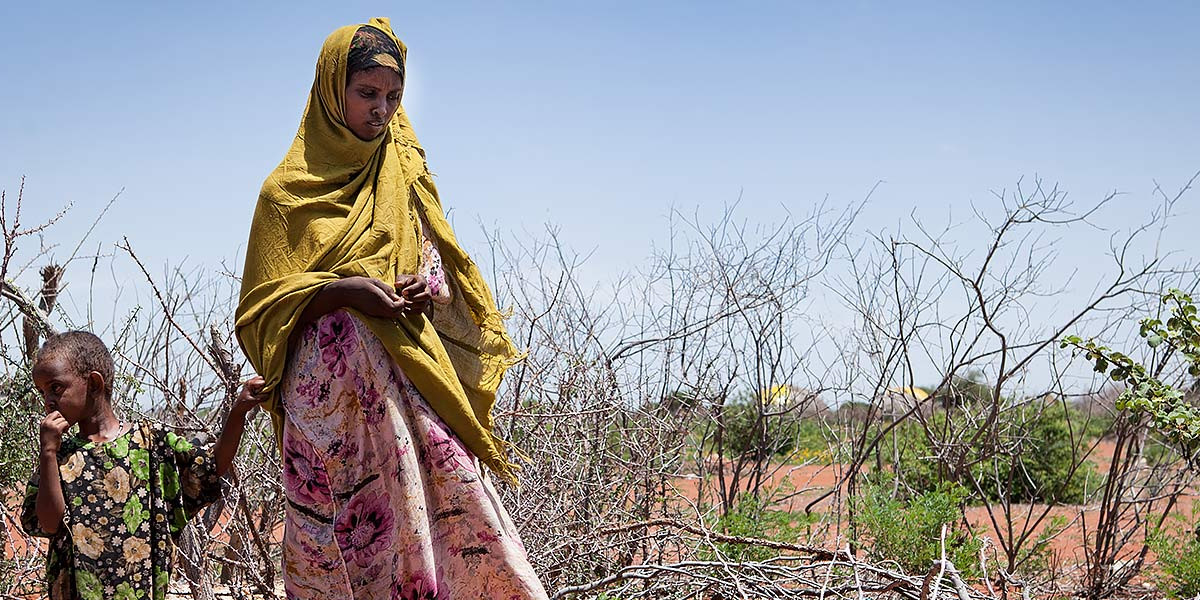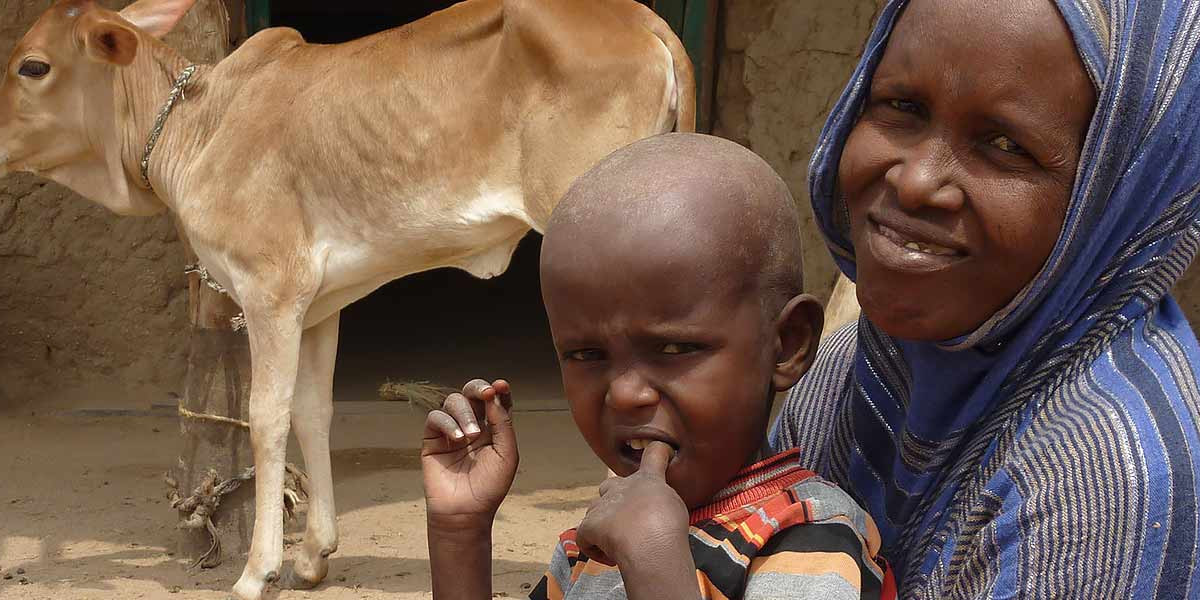Mako is pregnant with her sixth child. In a few weeks, she will have her baby at home in her village in the Shinile district of the Somali region of Ethiopia.
With no midwives or health facilities nearby, a traditional birthing attendant will help her. One in three women around the world give birth without trained help. If anything goes wrong for Mako, her life, and the life of her baby are at risk. The nearest doctor is 50km away. It costs 200 Birr to get a car ride into town, but Mako doesn’t have any money.
A lack of medical facilities isn’t the only problem Mako, aged 35, is facing. Severe drought across southern and eastern Ethiopia has meant nearly all life has dried up. It is estimated that 7.5 million people in Ethiopia are in urgent need of humanitarian help.
In Mako’s village, the school has closed, the teacher gone. The market place has shut. The family used to have a herd of 50 sheep and goats. Now they only have one cow. Drinking water is scarce, and the pastures are parched.
Save The Children is giving Mako’s son, Hamsa, aged 4, medical care. The family is receiving emergency food rations, and has been given a donkey so they can travel to a water source and bring it back for the family. Across the Somali and Oromiya regions, Save the Children is providing water, food and sanitation for families like Mako’s, and helping to treat and feed starving cattle.



